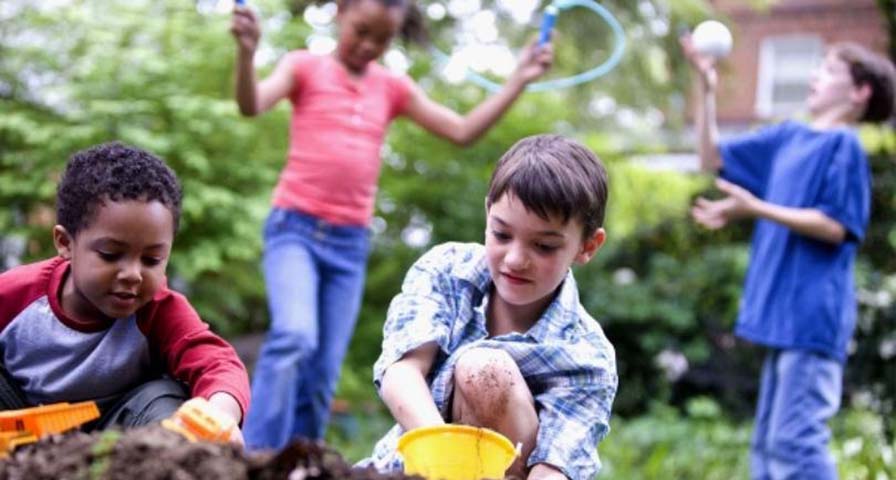Originally published April 17, 2020 by WTVY CBS in Dothan, Ala.
With stay-at-home orders in full effect across the country, people are sedentary more often than normal. This includes children, who are more accustomed to active situations in and out of school. Danielle Wadsworth, an associate professor in Auburn University’s School of Kinesiology, answers questions about how parents can help keep children physically active at home during the COVID-19 pandemic.
 How often should children exercise each day?
How often should children exercise each day?
The minimum recommendation for children is 60 minutes each day of moderate to vigorous activity. Moderate-to-vigorous activity should elevate the breathing and heart rate to a level that you could still talk, but not sing a song. The 60 minutes can be broken up throughout the day. More is better, as long as the child is able. Also, children should not sit for more than 60 minutes at a time.
Why should parents make sure that exercise and physical activity is part of a child’s daily routine during this time when children are not going to school?
First, physical activity is fun and is an activity that the whole family can do together. Physical activity has many health benefits and is associated with a reduced risk for heart disease, diabetes and other diseases. In addition, physical activity has health benefits that reduces feelings of anxiety and depression. Finally, physical activity can help children focus and complete schoolwork and reduce the meltdowns.
What are some easy activities children can do for exercise that use items most people would have at home?
I recommend parents think outside the box, because there are so many activities children can do. Some examples: play tag, hopscotch, four square, ride bikes, run, jump, relay races, walks, dancing, anything that gets them moving. Ask the child what they did in physical education class at school. Have them plan a family recess or PE challenge. There are also activities such as cosmic yoga, go noodle or other fun activities online. I would encourage families to just do something each day that is fun and gets them outside.
Can you talk about the mental health benefits of kids getting enough physical activity each day?
There is a strong link between physical activity and anxiety and depression that has been heavily researched. Although there are many theories as to the “why,” one reason may be that exercise increases the production of neurotransmitters and hormones that are low in people with anxiety and depression. If you are working on schoolwork with your child and a meltdown is close, go for a walk together. Encourage your child to talk about how they are feeling after the walk and help them begin to regulate their emotions with exercise. When one of my children was little, we practiced all of his spelling words on the trampoline. This helped him with breaking syllables down, reciting the words, avoided breakdowns and kept me sane.
The key is everyone is stressed now. This situation is new to everyone and not the time for major change. But, if you are able to be home with your child, you may find you have more time to take walks, play games and have fun. This is key – do it together and have fun!
Seeking information about IHT’s Remote Learning program?




